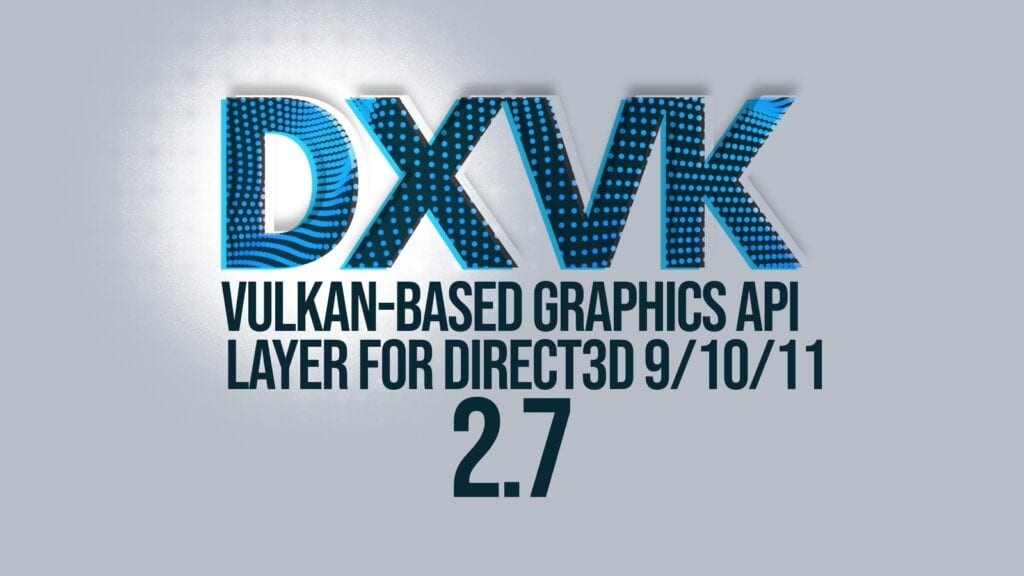Almost a month after its previous 2.6.2 release, DXVK, a Vulkan-based translation layer for Direct3D 9, 10, and 11, primarily used to improve the performance and compatibility of Windows games on Linux through Wine or Proton, has just released its latest update, v2.7.
One of the most significant changes is the requirement for the Vulkan extension “VK_KHR_maintenance5,” which has been implicitly relied upon since version 2.5. Unfortunately, this means that Windows users with AMD Polaris and Vega GPUs, which are no longer receiving driver updates from AMD, may face compatibility issues.
On Linux, however, these GPUs remain functional with Mesa 25.0 or newer thanks to RADV’s continued support. The developers also noted that AMD’s Windows drivers are increasingly problematic, making them a lower priority for future fixes.
A major under-the-hood overhaul in DXVK 2.7 is the modernization of descriptor management, now leveraging “VK_EXT_descriptor_buffer” by default on newer AMD and Nvidia GPUs. This change slashes CPU overhead, potentially boosting performance in CPU-bound titles like Final Fantasy XIV, God of War, and Watch Dogs 2.
That said, older GPUs—including Nvidia’s Pascal series and AMD’s RDNA2 (when using AMDVLK or Windows drivers)—won’t see this benefit due to performance regressions. RADV users, however, remain unaffected.
The trade-off? A slight GPU performance dip in some cases, though the overall experience should be more consistent. Users can tweak behavior via the “dxvk.enableDescriptorBuffer” option, and enabling Resizable BAR is recommended where supported.
Memory management also gets an upgrade. Intel Battlemage and Lunar Lake GPUs now have memory defragmentation enabled by default, whereas older Intel hardware retains the disabled setting due to rendering issues.
Moreover, discrete GPUs now enforce VRAM budgets more strictly, dynamically offloading unused resources to system memory under pressure. This should help Unity Engine games run smoother on VRAM-limited systems and even allow higher texture settings in some cases, though stuttering may still occur if VRAM is exceeded. AMD GPUs, however, are hindered by lingering kernel driver issues.
Lastly, as usual, DXVK 2.7 includes a slew of fixes:
- Multiple game-specific fixes, including crashes in Astebreed, startup issues in GTR – FIA GT Racing Game, and gamma problems in Wargame: European Escalation.
- Planar video output support for JR EAST Train Simulator.
- D3D11 shaders now zero-initialize memory by default, preventing undefined behavior in some games.
- Optimized D3D9 StretchRect for Source Engine titles.
- Fixed Vulkan usage in Unity Engine games using D3D11 video APIs.
As always, gamers relying on DXVK under Wine can upgrade to 2.7 to benefit from these tweaks and improvements. For more information, see the changelog.
